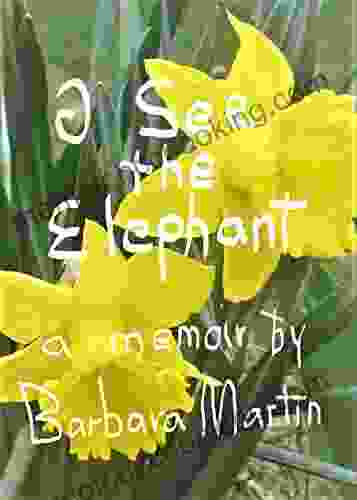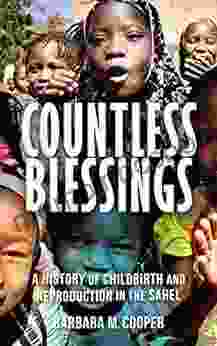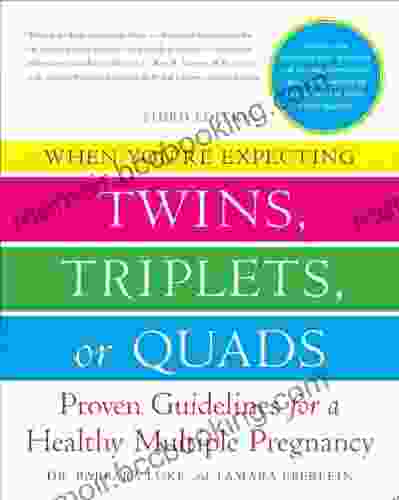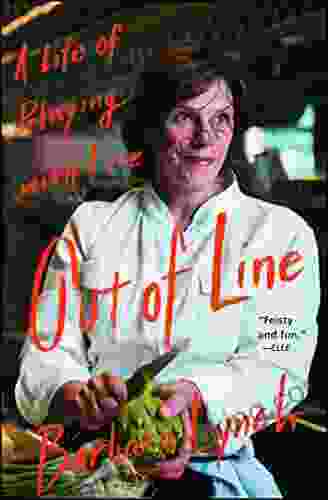How To Properly Document Your Nonprofit Actions: The Ultimate Guide to Transparency and Accountability

Nonprofit organizations play a vital role in our communities, providing essential services and advocating for important causes. However, with the increasing complexity of the nonprofit sector, it is more important than ever to ensure that organizations are operating transparently and accountably. One key aspect of this is proper documentation of all actions.
4.5 out of 5
| Language | : | English |
| File size | : | 17130 KB |
| Text-to-Speech | : | Enabled |
| Screen Reader | : | Supported |
| Enhanced typesetting | : | Enabled |
| Word Wise | : | Enabled |
| Print length | : | 216 pages |
Effective documentation provides a clear and accurate record of an organization's activities, decisions, and financial transactions. It serves as a valuable tool for internal management, external reporting, and compliance with legal and regulatory requirements. Well-documented organizations are more transparent, accountable, and efficient, which can enhance their credibility, attract funding, and build trust with stakeholders.
This comprehensive guide will provide you with everything you need to know about properly documenting your nonprofit's actions. We will cover the types of documentation required, best practices for record keeping, and the benefits of effective documentation. We will also provide case studies and resources to help you implement these best practices in your organization.
Types of Documentation Required
The specific types of documentation required will vary depending on the size and complexity of your organization. However, there are some general categories of documentation that all nonprofits should maintain.
*
Mission and Vision Statements
These statements should clearly articulate your organization's purpose, values, and goals. They should be reviewed and updated regularly to ensure that they remain aligned with your organization's strategic direction. *
Bylaws and Policies
Bylaws establish the legal framework for your organization, while policies provide guidance on how your organization will operate. Both bylaws and policies should be reviewed and updated regularly to ensure that they are compliant with applicable laws and regulations. *
Financial Records
Financial records are essential for ensuring the financial health and accountability of your organization. They should include a budget, financial statements, and documentation of all financial transactions. *
Programs and Services
Documentation of your organization's programs and services should include descriptions of the activities, goals, objectives, and evaluation methods. *
Board and Committee Meetings
Minutes of board and committee meetings should include a record of the discussions, decisions, and actions taken. *
Grants and Contracts
Documentation of grants and contracts should include the full text of the agreement, as well as records of all related activities and expenses. *
Fundraising
Documentation of fundraising activities should include a list of donors, donation amounts, and the purpose of the funds. *
Impact Measurement
Documentation of your organization's impact should include data on the outcomes of your programs and services.
Best Practices for Record Keeping
Proper documentation requires more than just collecting and storing paperwork. It is essential to establish and follow best practices for record keeping to ensure that your organization's documentation is accurate, complete, and accessible.
*
Create a Centralized System
Establish a central location for storing all of your organization's records. This could be a physical file cabinet or a cloud-based document management system. *
Develop a Document Retention Policy
Determine how long you will retain different types of records. This will help you to comply with legal and regulatory requirements, as well as to manage your storage space. *
Use Standardized Formats
Create templates for common types of documentation, such as meeting minutes and financial reports. This will ensure consistency and accuracy. *
Back Up Your Records
Regularly back up your records in a secure location. This will protect your organization's data in the event of a disaster. *
Train Your Staff
Ensure that your staff is properly trained on your organization's record keeping policies and procedures.
Benefits of Effective Documentation
Effective documentation provides numerous benefits for nonprofits, including:
*
Transparency and Accountability
Well-documented organizations are more transparent and accountable to their stakeholders. They can provide clear and accurate information about their activities, decisions, and financial transactions. *
Operational Efficiency
Good documentation can help nonprofits to operate more efficiently. It can reduce the time and effort required to find information, make decisions, and comply with legal and regulatory requirements. *
Improved Grant and Funding Opportunities
Grantors and other funding sources often require detailed documentation of an organization's activities, programs, and financial health. Proper documentation can increase your organization's chances of success in securing funding. *
Enhanced Credibility
Organizations that are well-documented are viewed as more credible and trustworthy. This can help to attract donors, volunteers, and other stakeholders. *
Protection from Legal and Regulatory Risks
Good documentation can protect your organization from legal and regulatory risks. It can provide evidence of your organization's compliance with applicable laws and regulations.
Case Studies
The following case studies illustrate the benefits of effective documentation for nonprofits:
*
Case Study 1: A small nonprofit organization was able to secure a large grant to fund a new program. However, the organization did not have adequate documentation of its existing programs and services. As a result, the grantors were reluctant to provide funding without additional documentation.
*
Case Study 2: A large nonprofit organization was facing a lawsuit from a former employee. The organization was able to use its well-documented records to defend itself against the lawsuit and ultimately prevailed.
*
Case Study 3: A nonprofit organization was audited by the IRS. The organization's well-organized and complete financial records made the audit process much smoother and less stressful.
Resources
The following resources can provide you with additional information on documenting your nonprofit's actions:
* The Nonprofit Finance Fund: https://www.nonprofitfinancefund.org/ * The National Council of Nonprofits: https://www.councilofnonprofits.org
4.5 out of 5
| Language | : | English |
| File size | : | 17130 KB |
| Text-to-Speech | : | Enabled |
| Screen Reader | : | Supported |
| Enhanced typesetting | : | Enabled |
| Word Wise | : | Enabled |
| Print length | : | 216 pages |
Do you want to contribute by writing guest posts on this blog?
Please contact us and send us a resume of previous articles that you have written.
 Book
Book Novel
Novel Page
Page Chapter
Chapter Text
Text Story
Story Genre
Genre Reader
Reader Library
Library Paperback
Paperback E-book
E-book Magazine
Magazine Newspaper
Newspaper Paragraph
Paragraph Sentence
Sentence Bookmark
Bookmark Shelf
Shelf Glossary
Glossary Bibliography
Bibliography Foreword
Foreword Preface
Preface Synopsis
Synopsis Annotation
Annotation Footnote
Footnote Manuscript
Manuscript Scroll
Scroll Codex
Codex Tome
Tome Bestseller
Bestseller Classics
Classics Library card
Library card Narrative
Narrative Biography
Biography Autobiography
Autobiography Memoir
Memoir Reference
Reference Encyclopedia
Encyclopedia Amanda Owen
Amanda Owen Barbara Herkert
Barbara Herkert Augusto Boal
Augusto Boal Annabel Streets
Annabel Streets Ann Vigola Anderson
Ann Vigola Anderson Barbara Lasalle
Barbara Lasalle Annette Insdorf
Annette Insdorf Ann Marie Brown
Ann Marie Brown Anthony R Palumbi
Anthony R Palumbi B A Creatives
B A Creatives Anne Baines
Anne Baines B J Seow
B J Seow Bandana Ojha
Bandana Ojha Annette Williams Mccann
Annette Williams Mccann Amy Lonetree
Amy Lonetree April Stephens
April Stephens Arisa White
Arisa White Anna Dale
Anna Dale Barbara Bassot
Barbara Bassot Ari Mennander
Ari Mennander
Light bulbAdvertise smarter! Our strategic ad space ensures maximum exposure. Reserve your spot today!

 Mark TwainOma Story: A Literary Masterpiece That Captures the Heart and Celebrates the...
Mark TwainOma Story: A Literary Masterpiece That Captures the Heart and Celebrates the...
 Harvey BellDoctoral, Doctorate of Education, EdD, PhD Dissertation, Master's Thesis, and...
Harvey BellDoctoral, Doctorate of Education, EdD, PhD Dissertation, Master's Thesis, and...
 Troy SimmonsMemoir of Food, Love, and War: A Culinary Journey Through Resilience and the...
Troy SimmonsMemoir of Food, Love, and War: A Culinary Journey Through Resilience and the... Jonathan HayesFollow ·13k
Jonathan HayesFollow ·13k Leo MitchellFollow ·4.7k
Leo MitchellFollow ·4.7k Isaac AsimovFollow ·19.2k
Isaac AsimovFollow ·19.2k Ernest ClineFollow ·7.2k
Ernest ClineFollow ·7.2k Junot DíazFollow ·10.8k
Junot DíazFollow ·10.8k Willie BlairFollow ·4.8k
Willie BlairFollow ·4.8k Darren BlairFollow ·9.6k
Darren BlairFollow ·9.6k Russell MitchellFollow ·18.7k
Russell MitchellFollow ·18.7k

 Brayden Reed
Brayden ReedTeach Your Child They Have No Self Worth And They Will...
By Dr. Jane Doe ...

 Shawn Reed
Shawn ReedUnveiling Centuries of Tradition: History of Childbirth...
Journey into the heart of the...

 Brady Mitchell
Brady MitchellProven Guidelines For Healthy Multiple Pregnancy
Congratulations on your...

 Dylan Mitchell
Dylan MitchellHarness the Power of Sleep for Optimal Health and...
In the fast-paced,...

 Herman Melville
Herman MelvilleAlexander Hamilton: The Revolutionary Who Shaped...
Alexander Hamilton was a...
4.5 out of 5
| Language | : | English |
| File size | : | 17130 KB |
| Text-to-Speech | : | Enabled |
| Screen Reader | : | Supported |
| Enhanced typesetting | : | Enabled |
| Word Wise | : | Enabled |
| Print length | : | 216 pages |








